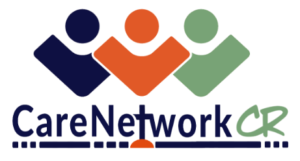 I originally wrote this essay in 2011 when I was a youth pastor. As I read through it again recently, I was struck by how the passing of time has only deepened my conviction about these principles. In this revision, I’ve made a few minor tweaks. And, for those interested, I have added links to related essays I’ve written over the years.
I originally wrote this essay in 2011 when I was a youth pastor. As I read through it again recently, I was struck by how the passing of time has only deepened my conviction about these principles. In this revision, I’ve made a few minor tweaks. And, for those interested, I have added links to related essays I’ve written over the years.
Someone re-posted on Facebook a parenting article by John Piper that has caused me some reflection. The excellent piece was originally written in 1993 and is entitled, “Teenage Resolutions: For Mom and Dad” (I’ve pasted it below).
Families would certainly experience much harmony if teens would willfully choose to adopt these resolutions. However, a mistake would be for us parents to try to demand, manipulate, or coerce our kids to adhere to such a list. (The fact that the list was created by a parent–John Piper–rather than a conscience-stricken teenager makes it feel just a little coercive to me.) Just as love must be chosen, so must be our kids’ commitments. And like it or not, such things are largely out of our control.
The hidden danger of Piper’s list is that it might only serve to make parents frustrated with their kids’ shortcomings. It would be more useful for us to brainstorm about the kinds of commitments we might make to our teens–something over which we have total control!
If parents would take the first steps in committing to relate to our kids in a safe, respectful, nurturing way, I think the chances of our kids adopting a list like Piper’s would be high. So with that in mind, here’s my list of…
“Parent Resolutions: For Teenagers”.
- Resolved: to influence you spiritually by devoting myself to knowing God more deeply and living authentically with integrity.
- Resolved: to love God first and my spouse and you children second.
- Resolved: to take responsibility to be your primary spiritual shepherd.
- Resolved: to always tell you the truth, so you have reason to trust my leadership.
- Resolved: not to allow work, recreation, or other involvements, to distract me from being a good parent.
- Resolved: to always view you as a precious, yet temporary entrustment from God.
- Resolved: to protect you, but not be overprotective or controlling.
- Resolved: to continuously nudge you toward becoming a responsible adult, ultimately working myself out of a job.
- Resolved: that my satisfaction in being a parent will not fulfill some detrimental sense of needing to feel needed.
- Resolved: to gradually let go of you over time and avoid excessive hovering, rescuing, and clinging to you.
- Resolved: to give you as much freedom and as many choices as you prove capable of handling, allowing you to learn from your failures.
- Resolved: to always treat you with dignity and respect even if I disagree with some of your choices and values.
- Resolved: to genuinely listen to you, seeking to understand your point of view.
- Resolved: never to pressure you to fulfill my unachieved dreams nor to meet some unfulfilled need stemming from my own upbringing.
- Resolved: to teach you many of the life skills that will help you function independently.
- Resolved: to help you discover your God-given talents and skills and to invest in their development.
- Resolved: to allow you to pursue your own suitable interests and hobbies.
- Resolved: never to compare you to other people’s kids or pressure you to be a superkid.
- Resolved: to help you prioritize your involvements, with the things of God taking priority over the things of the world.
- Resolved: to invest generously in providing you opportunities for spiritual growth.
- Resolved: to help you learn wise financial responsibility by giving you money to practice with.
- Resolved: to speak honestly, straightforwardly, and privately to you about any concerns I have — avoiding sarcasm, inferences, subtle hints, nagging, overgeneralizations, labeling, venting and triangulation.
- Resolved: never to intentionally embarrass you in front of others or slander you.
- Resolved: to highlight publicly your good qualities as well as those of your generation.
- Resolved: to major on the majors and minor on the minors.
- Resolved: not to expect your very best all the time but rather that which is reasonable for the moment, knowing that no one (myself included) can give 100% simultaneously to every area of life.
- Resolved: that my acceptance of you not be performance based, but rather grace oriented.
- Resolved to allow you to fail, learn from your mistakes, and solve your own problems.
- Resolved: to be consistent in my rules and disciplining.
- Resolved: to treat you and your siblings individually according to your needs rather than equally, and to be ready to explain any apparent differences in treatment.
- Resolved: to seriously consider your feedback about the fairness of my rules, chores, discipline, etc.
- Resolved: to set family chores that are reasonable, based on everyone’s ability and availability.
- Resolved: not to make arbitrary rules, but rather ones that are purposeful.
- Resolved: to communicate the “why” behind things as often as possible.
- Resolved: never to say “Because I said so.”
- Resolved: to administer natural consequences that are appropriate to the offense, not arbitrary punishments that merely put you in your place or inflict pain.
- Resolved: to never discipline you out of anger or when I’m emotionally dysregulated. I will give myself a time-out to cool down first.
- Resolved: to encourage your successes and give you empathy for your failures.
- Resolved: to say “Yes” every time I can and to only say “No” when necessary. And to avoid the asking “Why“.
- Resolved: to treat you with the same respect that I expect from you, putting my requests of you in the form of polite questions as often as possible and use the imperative only when necessary.
- Resolved: to say “Please” and “Thank You”, extending you the same courtesy I would request from you.
- Resolved: never to use my power and authority in an authoritarian way and never to treat you like property or a household slave.
- Resolved: to be willing to show remorse when I’m wrong and be quick to apologize when needed.
- Resolved: to give you clear instructions on what I expect from you.
- Resolved: to acknowledge the difficulties of being a teenager and love you unconditionally in the midst of them.
- Resolved: to acknowledge your feelings even when they may not seem sensible to me.
- Resolved: to call you by affectionate titles that are honoring and not embarrassing or derisive.
- Resolved: never to pressure you to behave a certain way just to make me look good.
- Resolved: to not need you for any selfish motive of mine.
- Resolved: to try my best to give you the benefit of the doubt and assume the best about you.
- Resolved: that whenever you violate my trust I will work with you to find opportunities to rebuild my trust in you.
- Resolved: to give 10 compliments for every criticism and that every criticism I do give is constructive.
- Resolved: to encourage you to reach your potential, but not to withhold my love if you don’t.
- Resolved: to believe in you.
- Resolved to be a friend to you.
Mark
Here is Piper’s list, titled “Teenage Resolutions: For Mom and Dad.” Teens: there’s much wisdom here if you can accept it! He really describes what being a godly teen looks like in very practical ways.
- Resolved: I will obey your instructions and do what I know you expect of me, even when it is not mentioned. I will not force you into repeated reminders, which I sometimes call nagging.
- Resolved: I will not grumble or complain when I do my chores, but remember what a great thing it is to have a family and a home and clothes and food and running water and electric light and central heating in a world where millions of teenagers have none of these.
- Resolved: When I think your demands are unfair, I will move to do them first, and after showing an obedient attitude, I will ask if we can talk. Then I will explain my side and try to understand yours.
- Resolved: I will not stonewall you and give you the silent treatment, which I dislike when my friends do it to me. If I am depressed and want to be left alone, I will say, “I’m sorry, I don’t feel like talking right now. Can we talk later? I’m not mad; I just need to be alone.”
- Resolved: When I do something wrong and let you down, I will apologize sincerely with words that you can hear. Something like: “Mom, I’m sorry, I didn’t pick up the pile of clothes.”
- Resolved: I will call you by affectionate family titles, like “mommy” or “daddy”, or “mom” or “dad”. And I won’t let other kids pressure me into calling you nothing, or calling you something disrespectful as though true affection were embarrassing or childish.
- Resolved: I will say thank you again and again for the ordinary things you do for me. I will not take them for granted as though you were my slave.
- Resolved: I will talk about my feelings. Both the positive ones (like happiness, pity, excitement, sympathy, etc.) and the negative ones (like anger, fear, grief, loneliness, discouragement, etc.). I will remember that unshared feelings lead to estrangement and coldness and even more loneliness and discouragement.
- Resolved: I will laugh with the family and not at the family. I will especially laugh when my little brother or sister tells a simple joke with expectant excitement.
- Resolved: I will give two compliments for every criticism. And every criticism will aim to help someone improve, not just belittle or cut down.
- Resolved: I will enter into family devotions and treat Bible reading and prayer with respect and do my part to help others in the family enjoy them. When I don’t feel spiritually strong, I will pray about this as a personal need rather than pouring it on others as a glass of cold water. I will remember that confessed weakness knits hearts together.
- Resolved: I will not return evil for evil or try to justify my meanness because somebody treated me meanly first.
- Resolved: I will read my Bible and pray every day even if is only a verse and a brief call for help. I know that teens cannot live by bread alone, but by every word that comes out of the mouth of God.
- Resolved: I will come home at the time we agreed on. If something happens to stop me, I will call and explain and ask your guidance.
- Resolved: I will greet our guests with courtesy and respect and try to make them glad they came.
- Resolved: I will always tell the truth so that you can trust me and give me more and more freedom as I get older.
Pastor John
By John Piper. © Desiring God. Website: http://www.desiringgod.org/resource-library/taste-see-articles/teenage-resolutions-for-mom-and-dad




 I conceptualized this essay 18 months ago, but recent events in our family have shown me that it’s time to flesh out my thoughts.
I conceptualized this essay 18 months ago, but recent events in our family have shown me that it’s time to flesh out my thoughts.


 .
.




